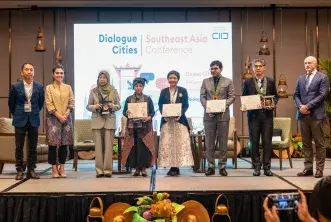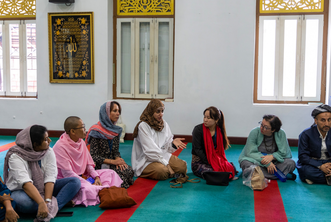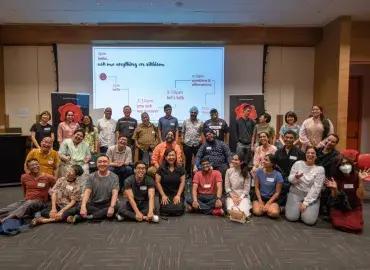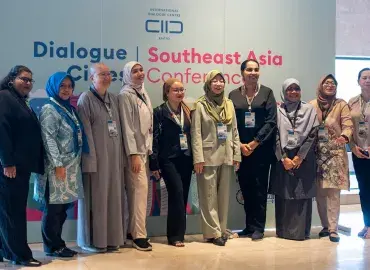From Trauma to Transformation: How One Man’s Journey Through Dialogue Sparked Faith, Healing and Love
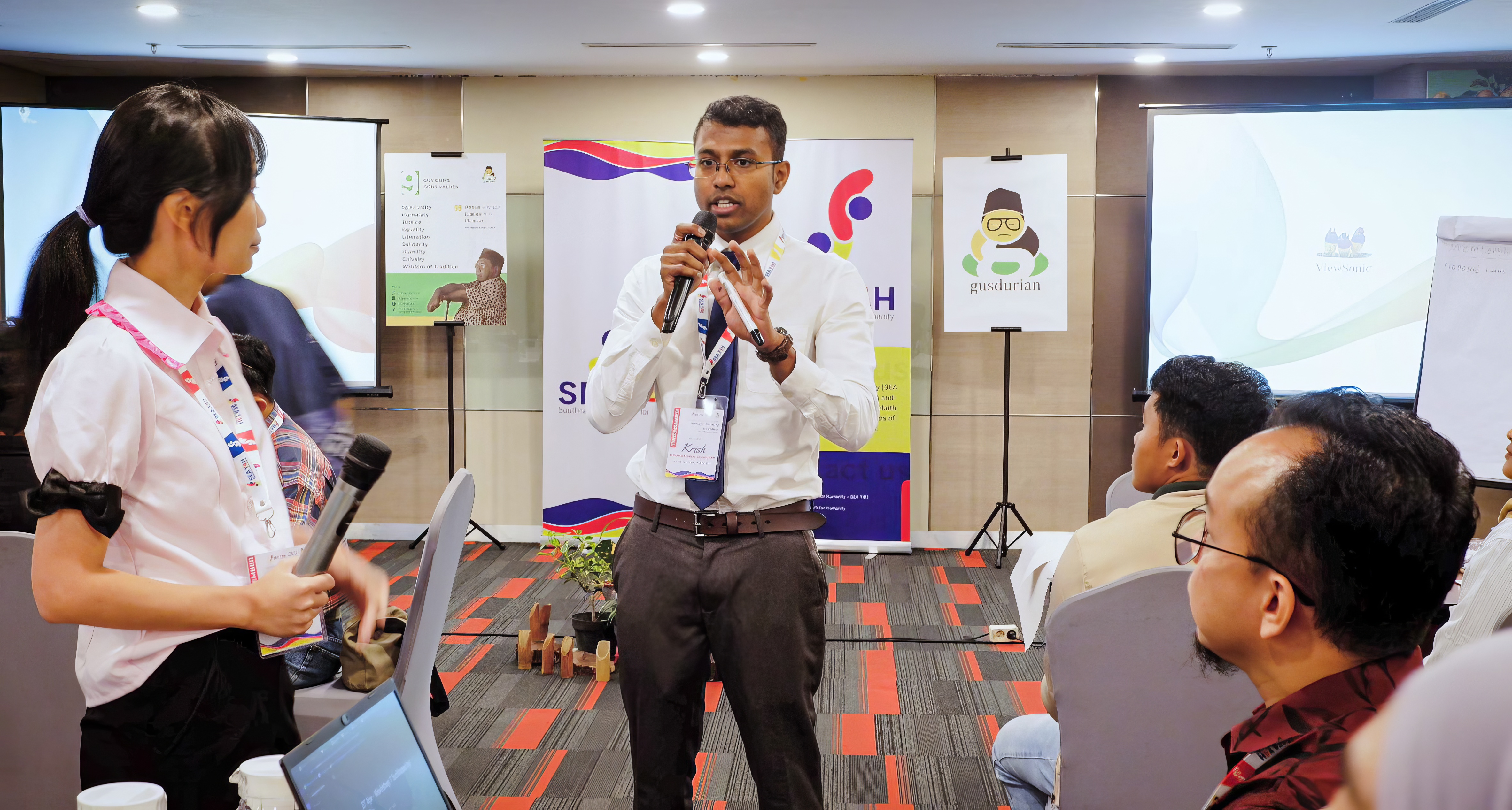
Communities suffer, not only from the echoes of broken men’s rage, but from the too-few voices of healed men” — Krish
At first glance, Krish Umar Illangovan – known by most as Krishna Krish – is many things: a logistics executive, a Tamil Muslim, an activist, writer, speaker, and programme coordinator for youth organizations in Malaysia. But beneath the titles lies an inspiring journey of personal growth and renewed purpose, one that begins in silence and ends in a chorus of connection, healing, and love.
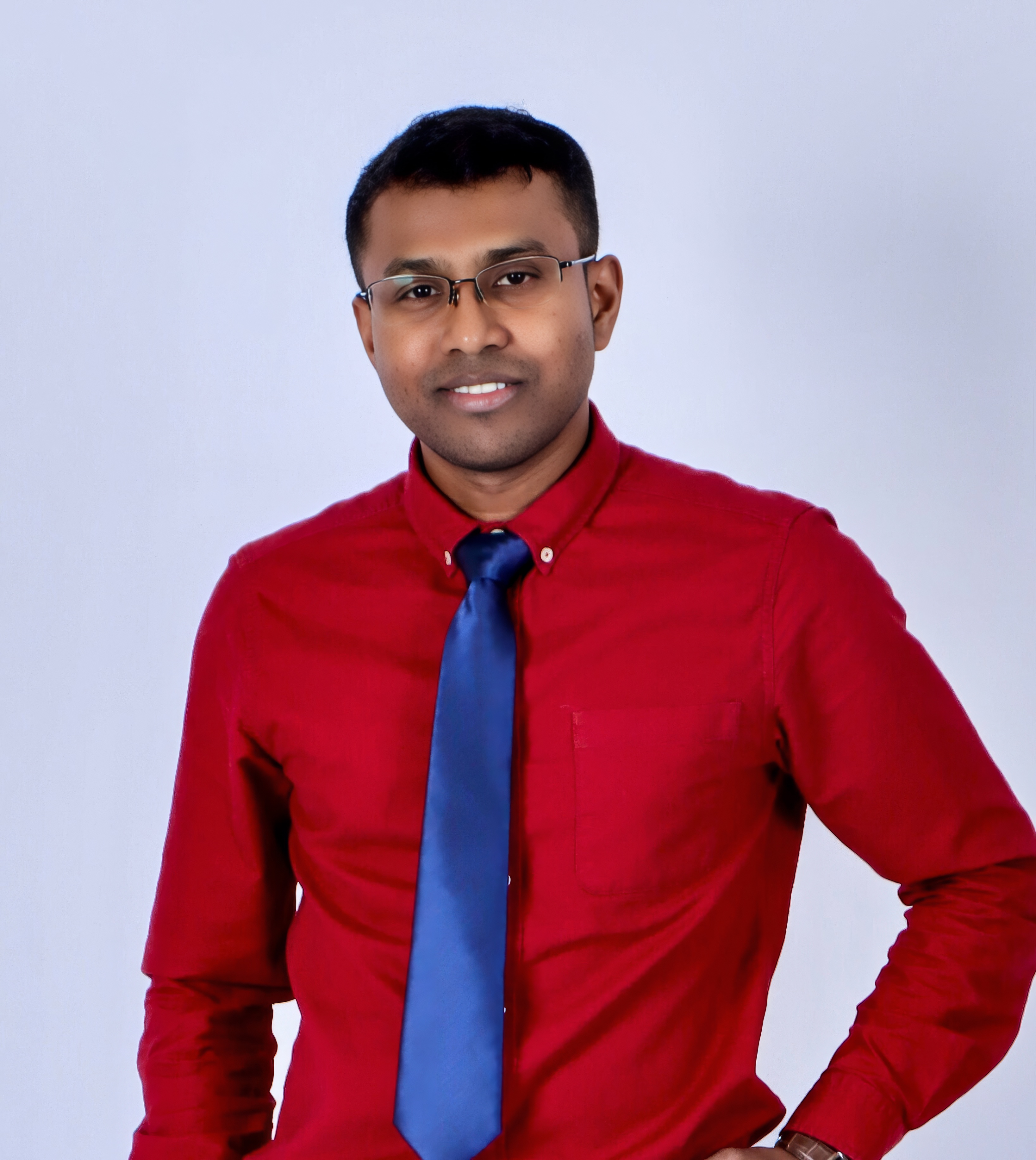
It is a story that spans across countries, from villages to cities, from caste discrimination, trauma, and intergenerational wounds, to spiritual searching, and, ultimately, a purposeful encounter with the world of interreligious and intercultural dialogue (IRD/ICD) – a world Krish entered through KAICIID, and one that has never let him go.
The Wound Beneath the Silence
Krish’s story begins not with his career or conversion but with brokenness. Born in Kampung Loke Yew, a marginalised Tamil village on the fringes of Kuala Lumpur that no longer exists, he was nine years old when his family relocated to the city suburbs – a jarring transition for a young boy. Raised in a low-income, father-absent household in Kuala Lumpur, Malaysia, Krish witnessed firsthand what happens when men are not taught to speak about pain.
Krish’s family originates from the Paraiyar people in Sevalur, a village in Tamil Nadu, India. A group classified by the caste system as ‘untouchables’. So vehement is the discrimination against the Paraiyar people that the English word phrase ‘social pariah’ and the behaviour of shunning such individuals derived from their name.
I grew up in trauma, not just mine, but inherited. There was a lack of dialogue, a lack of exposure, a lack of presence. Men were broken, but silent.
His first step towards healing was in 2015, when he stumbled into activism through an ethnic-based organization, thinking perhaps community service might offer relief to the stifling grip of trauma. It helped, but only up to a point. It wasn’t until 2019, when he accompanied his father to visit his ancestral home in Tamil Nadu that he experienced the caste system in practice. It was then that the stories of his grandfather came to life within his mind. Krish viscerally understood his family’s experience of being outcasts, and the challenges they faced before migrating to Malaya (as Malaysia was then called) because of their ‘Paraiyar-Pariah’ identity. It was after that experience that he began questioning everything.
That one-week visit changed my life. It haunted me. It made me ask: Why are people being discriminated against based on birth? How do I want to speak about this? Am I only helping ‘my people’? Or can I step beyond that?
Krish chose to step outside his comfort zone. Into unfamiliar territory. Into multiracial, multi-faith spaces. Into dialogue.
The Pandemic, the Pen, and a Portal
When COVID-19 locked down the world, Krish opened up.
He turned to writing, pouring reflections on faith, identity, justice, and healing into articles on his blog, storiesoftm.com. One piece in particular, “The Palestine Issue Is Not Religious - It’s a Humanitarian Crisis” exploded on social media. Seen through a Tamil lens, it struck a chord. It was shared over 8,000 times.
Among the readers was Dr. Alwani Ghazali, a professor and KAICIID Fellow, who reached out. Her message was simple but powerful: “I see you. Come speak. Come join us.”
That connection became a gateway.
Faith in Dialogue and Dialogue in Faith
In early 2023, after years of spiritual exploration, Krish quietly embraced Islam. It was a deeply personal decision. Raised in a devout Hindu household, he kept the conversion private, knowing the topic was socially contentious in Malaysia’s religious landscape.
But then came another invitation, this time to attend KAICIID’s Dialogue Cities Conference in Bangkok. Just weeks after converting, Krish found himself face-to-face with global leaders, monks, priests, imams, rabbis, and youth from across Southeast Asia.
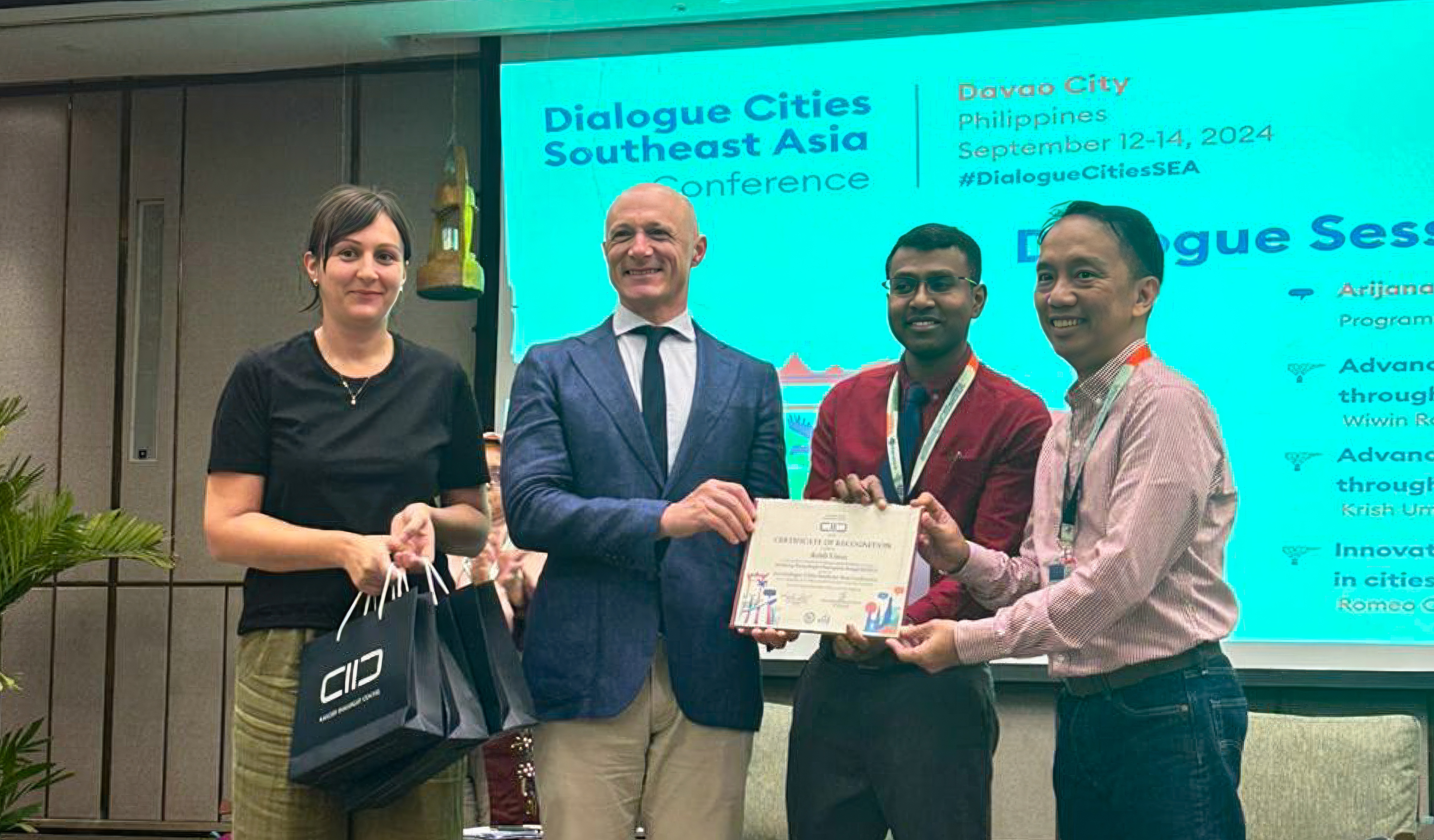
That event gave me courage. For the first time, I saw dialogue not as debate, but as healing. I realised I could speak about my conversion, not to convince, but to connect.
What followed was a personal renaissance. He began initiating dialogues with colleagues, friends, and family – gently, humbly, honestly. People listened. Asked questions. Cried. Hugged. Learned.
And it was during one of those conversations that Krish met Nur Atiqah Talkah, a young Malay Muslim lawyer and youth leader. They bonded over literature, law, social impact, and the politics of identity. One dialogue turned into a thousand. In February 2025, they got engaged.
There was something about our values, our mutual respect, we just clicked.
KAICIID and the Work of Repair
Krish’s journey didn’t stop at personal transformation; it turned into action.
Since 2023, he has become a core facilitator, trainer, and youth focal point for KAICIID’s Southeast Asian Youth for Humanity (SEA Y4H) initiative. From Bangkok to Yogyakarta to Davao, he has helped shape interfaith and intercultural workshops, strategic planning, and transformative storytelling programmes.
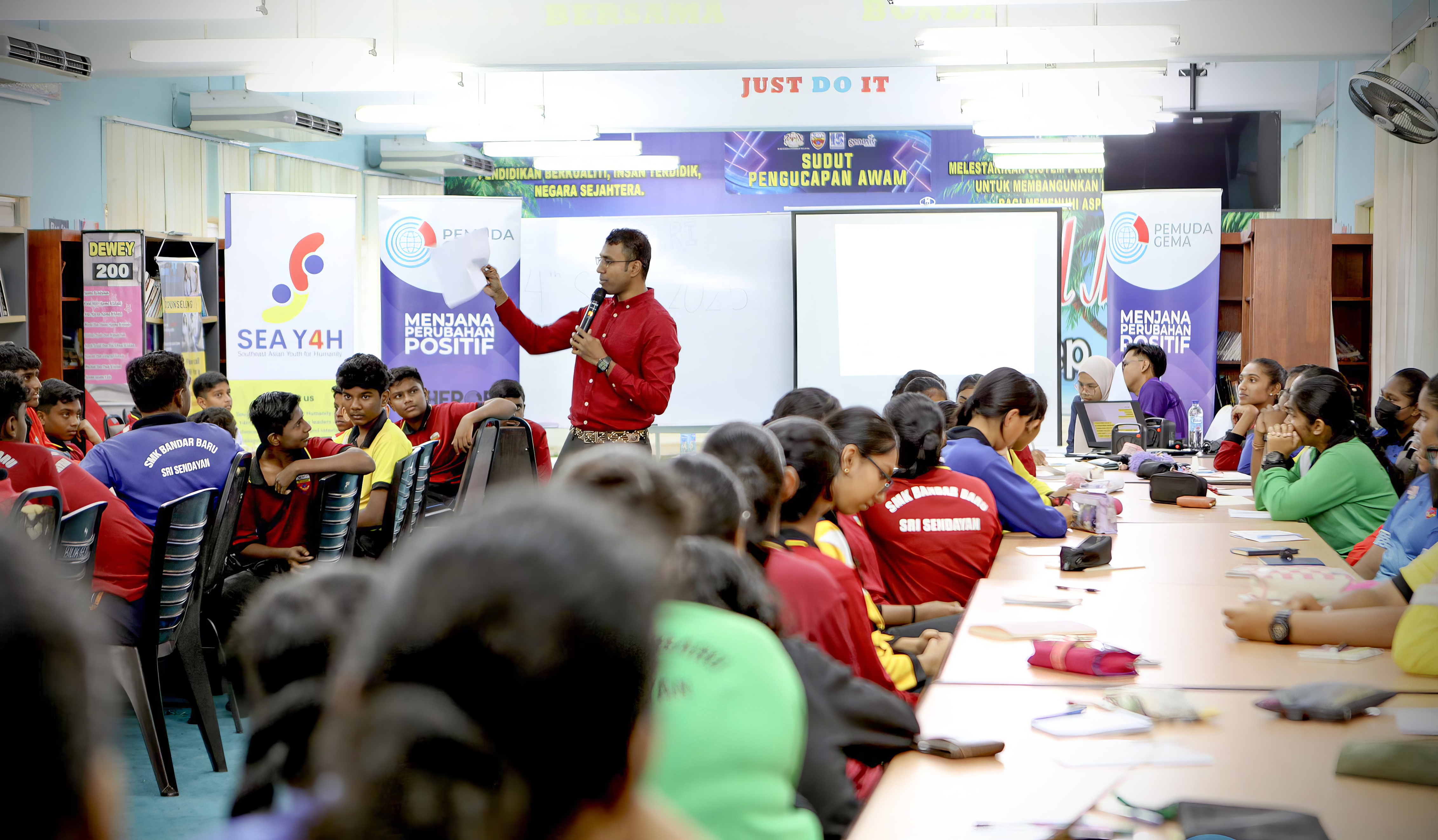
In March 2025, he launched his own initiative, the “Understanding Men” programme, a social intervention model for emotional healing through dialogue. The initiative is a grassroots response to the emotional stagnation of men in Malaysian society, shaped by Krish’s own upbringing and empowered by KAICIID’s tools.
Backed by a KAICIID mini-grant and his expanding network of activists, Krish now runs community dialogues, mental health awareness campaigns, talks, as well as interfaith, intercultural and intergenerational support circles, and storytelling labs, focused on helping men express vulnerability and build resilience.

We are taught to fight or stay silent. But what if we listened instead? he asks.
KAICIID gave me the model. I’m just applying it in my own context.
The Ripple Effect
Krish’s impact is unmistakable. His work has reached diverse communities: from Muslims to Hindus, Christians, Buddhists; from youth to elders, educators, and NGOs. He has been invited to speak at universities, schools, forums, and government events, weaving the language of dialogue into topics ranging from youth education, to women’s empowerment, national language identity, unity advocacy, men's mental health, and Palestine solidarity.
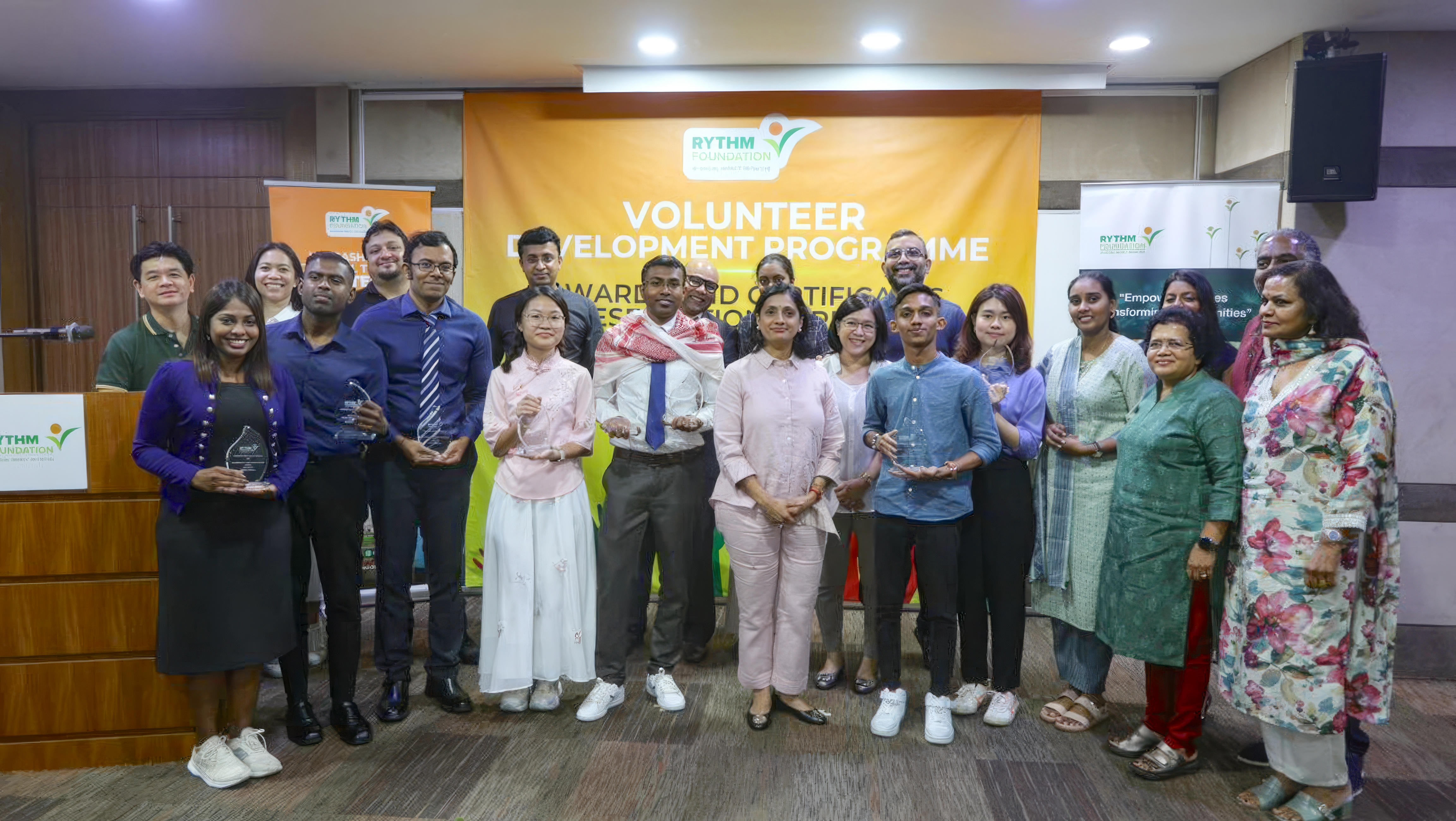
Krish being awarded in the Volunteer Development Award Programme
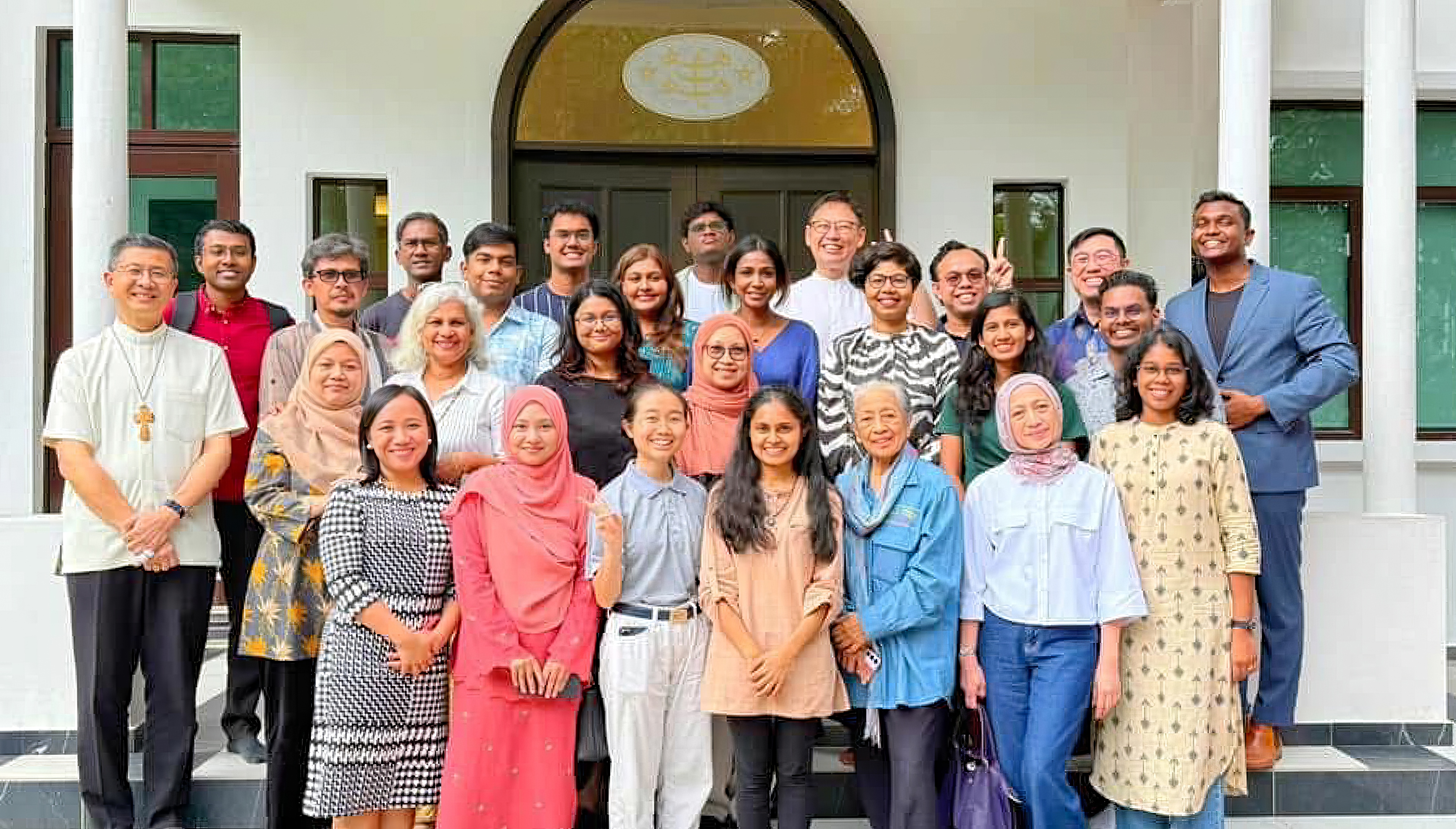
Krish particiapting in the Bahai Educational Roundtable
What KAICIID taught me,” he says, “is that dialogue is not an agenda. It’s an invitation to connect.
It is an invitation that, for Krish, has changed everything. His faith. His work. His voice. His heart.
Looking Forward, Looking Inward
Today, Krish continues to build his “Understanding Men” programme into a replicable model for emotional intelligence, interfaith empathy, and cultural healing. He sees potential for it to scale across ASEAN, and possibly globally.
His message to KAICIID?
KAICIID showed me that difference isn’t danger. That dialogue isn’t weakness. That love can be political. And that the voices of healed men can become our most powerful tool.
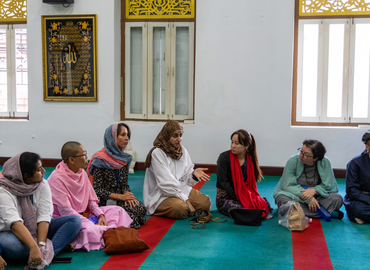
Peacebuilding today requires more than technical solutions; it demands inclusive, values-…

